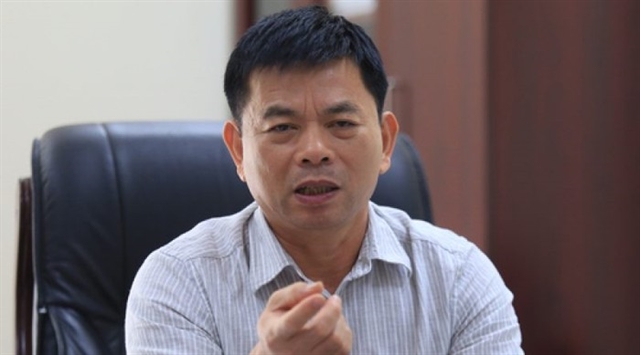.jfif) Opinion
Opinion


|
| General Nguyễn Thanh Hồng |
General Nguyễn Thanh Hồng, a standing member of the National Security and Defense of the National Assembly Commission talks to Tiền Phong (Vanguard) newspaper on the need to tighten the control of temporary resident cards for foreigners in Việt Nam.
What are your comments on the recent bust of a major hi-tech gambling ring in the northern port city of Hải Phòng?
The hi-tech gambling ring in Hải Phòng City has strong links with international organised crime in Việt Nam. The successful capture of the ring is an indication of a weak point in Việt Nam’s management work.
At a recently concluded National Assembly full house meeting, the Ministry of Public Security already raised the alarm that Việt Nam would likely become a transit point for drug trafficking to other foreign countries.
Facing this reality, our anti-criminal office should adopt, as soon as possible, pro-active measures against drug trafficking.
Việt Nam has opened up its doors and offered lucrative policies to attract more investors into the country. So is the case of our tourism industry. However, such policies have presented big challenges to Việt Nam in the course of fighting crimes.
What has recently happened in Hải Phòng’s Dương Kinh District is an indication of our weakness in State management – particularly in the management of foreigners living and working in Việt Nam. One of the reasons leading to the problem may be that we have focused too much on attracting foreign investment and not paid due attention to the work of management, including residency management or the movement of foreigners in the country.
Though we have already adopted a policy to restrict the movement of foreigners in certain areas, yet in reality that policy has not been strictly implemented due to one reason or another, including the psychology of some of our law enforcement officers who have poor foreign language skills.
In your opinion, should the Hải Phòng authorities bear certain responsibility for what happened in their city?
Yes! Local authorities and functional agencies should bear responsibility for what has happened in their city. Our law has stated clearly the responsibility of the local Immigration Bureau and the concern local agencies, including the local Government.
According to what has been reflected in the media, almost 400 Chinese nationals were in the urban areas on Phạm Văn Đồng Street in Hải Phòng’s Dương Kính District, yet only 27 of them had valid temporary permits. It means there is some problem in the residency management.
Who will take responsibility for what has happened in Hải Phòng?
Whenever a bad thing happens, we often say that someone has to take responsibility for what has happened. Yet, in reality, such regulations only stay on paper. Or one resolution of the National Assembly states that the head of an agency will have to take responsibility for any problem which occurs in their office. Yet, until now such a rule only stays on paper.
However for what has happened recently in Hải Phòng, under the policy of the Ministry of Public Security, the head of the police at the grass roots level has to take responsibility for what happens in the area under their management.
What should we do to stop such a loophole?
We have all legal documents on the management of foreigners in Việt Nam. But what we should do now is to review if these legal documents have been strictly implemented or not.
For what has happened in Hải Phòng recently, the work of administrative management is somehow weak. I’m pretty sure, in the near future, the Government will issue an instruction on the management of foreigners who reside in Việt Nam and activities of foreign enterprises in the country too, particularly in sensitive fields using high tech. — VNS




